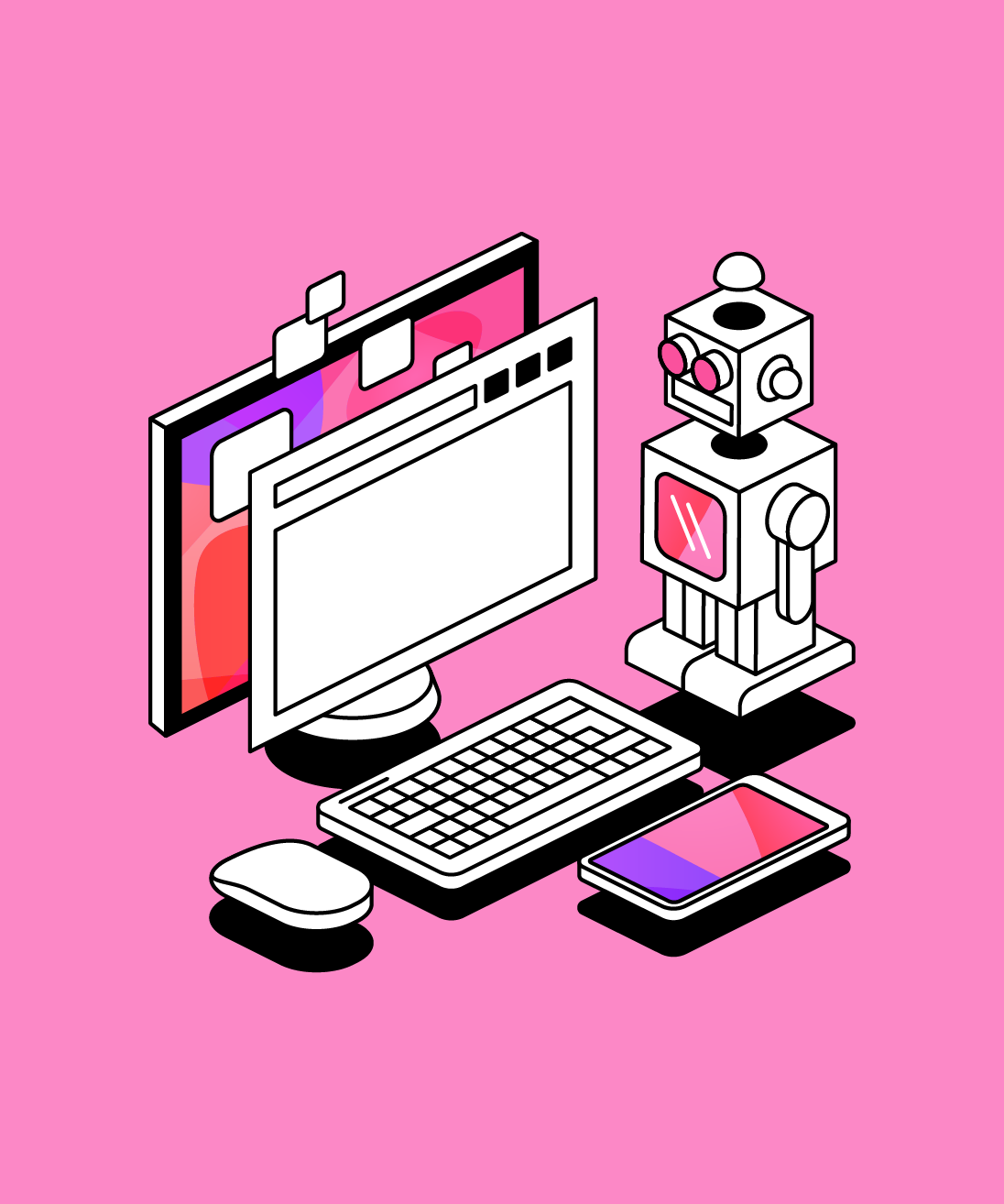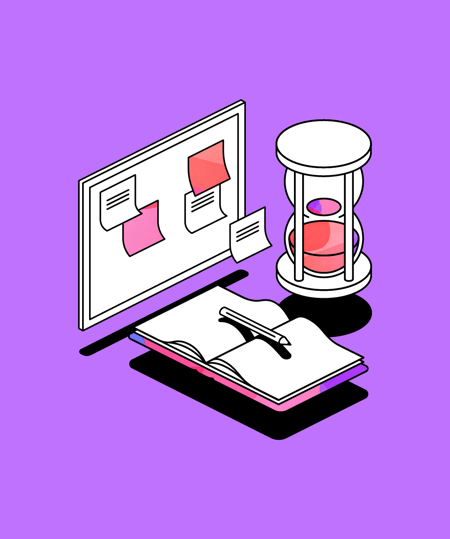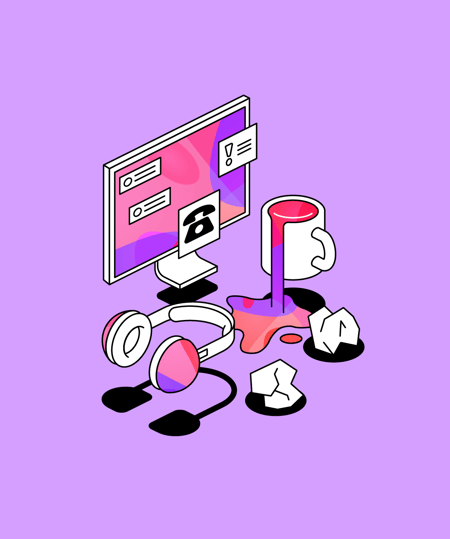Designing for development: Why AI demands we rethink assessment
In this blog, Genio's Learning Lead, Sammy, explores what a curriculum designed for development rather than assessment would look like, while leveraging AI to empower students to take ownership of their own learning and development.
 3 min read
3 min read
 Published: 14 Nov 2025
Published: 14 Nov 2025
 Sammy White
Sammy White


The arrival of powerful AI tools has intensified the call to redesign tasks. The logic is simple: If AI can complete it, the task is no longer fit for purpose.
Drawing on her own experience as an ex-maths teacher, Genio's Learning Lead, Sammy, knows the pressure to "cover content" and argues the real problem isn't the task; it's the outdated educational paradigm rooted in measuring a single, correct answer.
In this piece, Sammy explores why we must stop designing for assessment and start designing for development, using AI not as a threat to be outsmarted, but as a catalyst for building metacognition, problem-solving, and true lifelong agility.
In the wake of new AI-powered tools like Google's Homework Helper for LMS users, a familiar conversation has intensified, a call that we must redesign tasks. The argument is simple: If a tool can complete a task, the task is no longer fit for purpose.
But is it that simple? Is it that if a task is vulnerable to cheating, the task is pointless? To me, I hear we need to go back to the drawing board, but how far back do we go?
Re-designing tasks focuses on the symptoms, not the cause. It leads some to an arms race of obscure assignments designed to be "un-cheat-able." But this is a losing game, as we know.
Most efforts to "redesign" tasks do little more than add layers of complexity to an outdated model. We might ask for a personal reflection or a video presentation instead of a paper. These feel like solutions to the challenge in front of us but they still test knowledge acquisition and I wonder if that is where the problem lies.
Are we still rooted in a model where the goal is to produce a single correct answer? That is what a mark scheme is for after all.
The disconnect between education and professional life
In professional life, the challenge isn't finding a known answer; we thrive on working through the challenge. I sit in many meetings where the route to success isn’t clear; but we generate hypotheses, test, reflect and iterate.
At no point do I sit in meetings at work with a challenge and my manager has a mark scheme grading my work. When I have an objective to solve, how I do it is up to me. My manager grades how well I face the challenge; being successful is unimportant.
If I fail at solving a challenge, my manager still grades me in my performance reviews as successful in terms of how I tackled the problem. In the real world, knowledge retrieval is not assessed. The application of knowledge and previous experiences is rewarded.
The knowledge is needed and assumed, and it is also assumed that if I don’t know something, that I go out and find the answers needed. A simple redesign of tasks in education, therefore, fails to bridge the gap between education and the dynamic, messy reality of modern careers. It’s a bit like giving a student a better map for a road that no longer exists.
Reimagining the task: Design for development
The true path forward is to completely reimagine the purpose of a task. We must shift from designing for assessment to designing for development. The task is no longer a test of what a student knows, but a vehicle for building the very skills that matter most: problem-solving, collaboration, and metacognition, the ultimate foundation of learning how to learn.
In this new paradigm, AI is not a threat to be outsmarted, but a catalyst to be leveraged. We can outsource the rote, procedural elements of a task to AI, freeing up students and educators to focus on what humans do best.
We can use AI to curate and find knowledge for us. We must fact-check it, of course. We can use AI to give us a best guess of what it would do in a similar situation, but it doesn’t have the experiences or context we have. Very often I will use AI to show me what not to do and help me clarify my own path forward.
This collaboration with AI does not replace the collaboration with colleagues in solving challenges. It is another tool to support us as we move forward together.
This reimagining of education is not easy. It requires a fundamental shift in our educational paradigms and a willingness to move far beyond our current experiences. It means challenging beliefs about what constitutes a valid learning activity and what a successful outcome looks like.
It demands that we let go of control and empower students to take ownership of their learning in a way we have never before. I’m reminded of my own time as a maths teacher. I prided myself on teaching students to think around a problem, to discover the value of π with nothing but a piece of string and a ruler.
Yet, when I think back, those lessons were few and far between. The vast majority of my time was spent on "chalk and talk" because the curriculum demanded I cover a certain amount of content in a set period.
This is why the starting point for redesign is not the task itself, but the qualifications that define the curriculum. The current qualification model, which is often tied to a mark scheme, is the real obstacle. What we choose to measure, gets measured.
Until we redefine what we measure and value in education, our efforts to innovate at the task level will remain isolated, and we will continue to be constrained by an outdated way of thinking.
More from Supporting Students
View All
 2 min read
2 min read
How AI note taking tools can bridge learning gaps for STEM students with disabilities
Here, we explore how AI powered note taking tools act as a critical scaffold for STEM students with disabilities, helping with active conceptual engagement. This post breaks down how live transcripts and AI-generated retrieval practice. like quizzes, empower students to navigate technical subjects with full academic independence.

 3 min read
3 min read
How Genio Present can help students become more confident speakers
Students with anxiety or Specific Learning Differences can struggle to participate in oral assessments confidently and equitably. Learn how Genio Present helps students overcome public speaking anxiety, transforming nervousness into confidence and improving academic performance through innovative rehearsal techniques based on learning science.

 5 min read
5 min read
6 accessible learning apps for college students in 2026
Selecting tools that bridge accessibility and independence can be a transformative step in a student’s academic journey, fostering skills that last long after graduation. Here, we explore 2026’s top accessible learning apps, which empower students by automating unproductive barriers while preserving the deep, active engagement essential for true learning.





